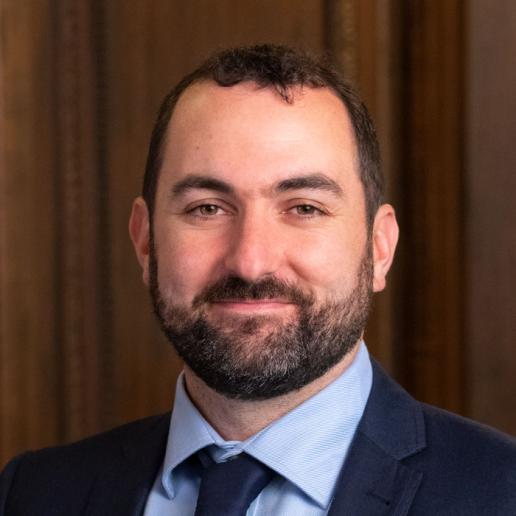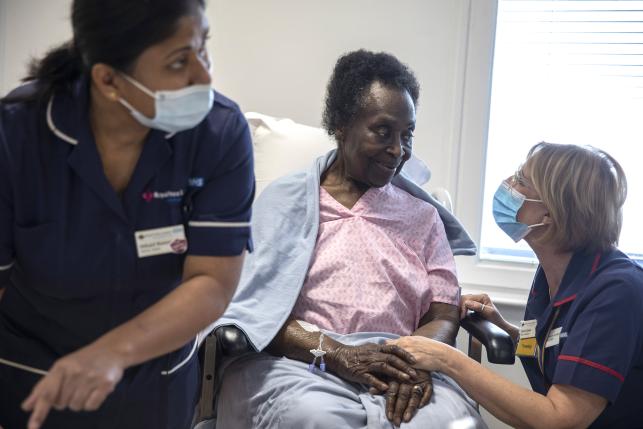Placement: Boston University School of Public Health
Mentor: Sandro Galea, M.D., M.P.H., D.P.H., Dean and Robert A. Knox Professor, Boston University School of Public Health
Project: COVID-19, Inequity, and Underinvestment in US Population Health
Nason Maani, Ph.D., M.Sc. PH, FRSA, is a 2019–20 U.K. Harkness Fellow in Health Care Policy and Practice. Prior to this he was an Assistant Professor in the Faculty of Public Health and Policy at the London School of Hygiene and Tropical Medicine, where he lectured in the school’s flagship M.Sc. Public Health program. Maani's research focuses on the structural and corporate determinants of health, seeking to describe the various drivers and channels through which upstream determinants such as equity, the generation of knowledge and public discourse, and commercial actors, affect population health. To date, this has included examining the funding of research, lobbying front groups, and charities that produce and disseminate misleading science about the causes of illness and the role of marketing in exacerbating health inequities. Maani’s work has been featured in outlets such as the Milbank Quarterly, Lancet Public Health, JAMA, Scientific American, and the BMJ, and in news reports including CNN, Reuters, Voice of America, the Guardian, the Telegraph, Politico, the Washington Post and Mother Jones. Maani is a fellow of the Royal Society of the Arts, a member of the Society for Social Medicine and Population Health, and an Associate Fellow of the Higher Education Academy. He graduated with first class honors (Presidents Prize) in Biomedical Science at the University of Ulster, where he also completed his Ph.D., for which he won a Roche Young Researcher of the Year award.
Project Overview: COVID-19 has emerged as the defining health challenge of our time, affecting the lives of people worldwide. Both in the US and the UK, the spread and severity of COVID-19 is not felt equally, but instead disproportionately falls on certain groups. While much public debate has focused on the healthcare response to COVID-19, we argue that it is largely the structural determinants of health that ultimately influence population health, including the damage wrought by COVID-19. Through the development of a policy report grounded in population level data on equity and health, this work sought to identify structural drivers that have contributed to the United States' vulnerability to COVID-19, how they arose, and how they might be ameliorated in the building of a healthier and more prosperous US population.
Two longer-term trends were identified along these lines. The first was is the underinvestment in public health structures in the US, at both the state and federal level, including a focus on reactionary vs strategic funding, a lack of focus on coordination and consistent standards, and repeated depletion of public health funds to serve healthcare budgets and priorities. The second was an underinvestment in the health of the US population. Compared to its peer countries, the US is characterized by growing income inequality, racial health inequities, large marginalized and vulnerable populations, and high healthcare costs. A failure to address these issues has contributed to persistently poorer population health outcomes, with the burden of poor health falling disproportionately on those of lower socioeconomic status. The combination of underinvestment in public health infrastructure combined with unaddressed health inequities, and the nature of the social inequity that underpins them, increase the vulnerability of the US population to the physical, mental and socioeconomic consequences of COVID-19.
Harkness-Related Publications:
S. Galea, N. Maani. "US election result must not obscure need for higher education reform." Times Higher Education. 2020.
S. Abdalla, N. Maani, C. Ettman, S. Galea. "Claiming Health as a Public Good in the Post-COVID-19 Era." Development. 2020.
N. Maani, S. Galea. "How American Health Was Broken Before COVID-19." Psychology Today. 2020.
S. Galea, N. Maani. "The cost of preventable disease in the USA." The Lancet Public Health. 2020.
N. Maani, S. Galea. "Physicians and social determinants of health – reply." JAMA. 2020.
S. Galea, N. Maani. "The Non-immigrant Visa Proclamation is the Latest Step Toward Self-destructive Othering." The Hill. 2020.
N. Maani, S. Abdalla, S. Galea. "The Firearms Industry as a Commercial Determinant of Health." American Journal of Public Health. 2020.
N. Maani, S. Galea. "The True Costs of the COVID-19 Pandemic." Scientific American: Springer Nature. 2020.
N. Maani, S. Galea. "COVID‐19 and Underinvestment in the Public Health Infrastructure of the United States." The Milbank Quarterly. 2020.
N. Maani, S. Galea. "COVID‐19 and Underinvestment in the Health of the US Population." The Milbank Quarterly. 2020.
N. Maani. "Compassion Is the Sixth Sense Humanity Needs." Thrive Global. 2020.
N. Maani. "Out of the shadows: Corporate activity and our health." The FUSE Centre for Translational Research. 2020.
N. Maani, S. Galea. "The Role of Physicians in Addressing Social Determinants of Health." JAMA. 2020.
N. Maani, M. McKee, M. Petticrew, S. Galea. “Corporate practices and the health of populations: a research and translational agenda." The Lancet Public Health. 2020.
N. Maani, J. Collin, S. Friel, A.B. Gilmore, J. McCambridge, L. Robertson, M. Petticrew. "Bringing the commercial determinants of health out of the shadows: a review of how the commercial determinants are represented in conceptual frameworks." Eur J Public Health. 2020.

